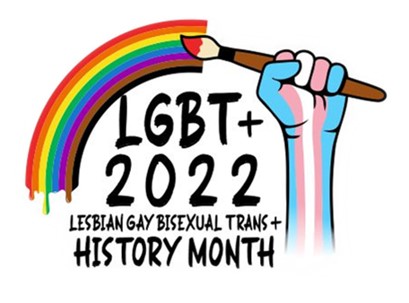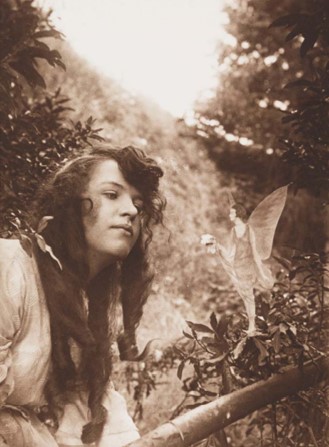
Are we in a golden age for documentary?
Documentary has, from the very start of cinema and the moving image, been at the heart of film culture. For me, 2015 was a wonderful year for factual films. and I will focus on a number of my favourites. But first a film that has had very limited release – and represents a new generation of self -financed and produced films, many of which are being realised through crowd-funding and the film-maker’s ability to shoot at virtually no cost using consumer digital technology, especially mobile phones.
The First Film is David Nicholas Wilkinson’s 33 year obsessive quest to prove that on 14 October 1888 Frenchman Louis Le Prince produced the World’s first films in Leeds, England some seven years before the Lumière brothers. A detective story with much focus on speculation and conspiracy, overly long and, in my view, desperately in need of some rigorous input from an editorially ruthless producer, the film nonetheless makes a worthwhile watch for anyone who is interested in the history of cinema and especially the very early days of its development. I also think it is worth reflecting on the style and approach of the film maker within the context of contemporary approaches to narrative set against the democratisation of story-telling thanks to new technology and means of distribution.
Once again, the vast majority of films I have watched in the last year have been in the English language. For me, this really begs the question as to why the UK and the USA are so dominant in this field. Historically the Americans have been the great innovators in observation and polemic. I make no apology for the profound influences US film-makers especially of the sixties, had on my approach to documentary story-telling and for me it is these authors whose embrace of new technology both then and now sets the bar for all creators in this genre.
Records have been broken with massive viewing numbers for Amy, a magnificent portrait of the singer Amy Winehouse directed by Asif Kapadia, a true master of working with archive, (though my congratulations are also directed to editor Chris King). When it is now ubiquitous to document our lives continuously with our mobile phones or little handycams, Kapadia’s palate was quite remarkable and gave the viewer a candid and unique insight into a tragic tale of talent, exploitation and disaster. This film has to be a big favourite for up-coming awards, but there is strong competition.
Sean McAllister’s A Syrian Love Story is an utterly absorbing journey filmed over five years of the tragedy of the war in Syria through the unravelling lives of a great female dissident and her family. I had the very good fortune to work with Sean in the early days of his remarkable career when I was his producer for a series called United Kingdom which I made for the BBC. He has a quite special talent as an observational documentary author of being able to film his subjects with absolute candour. He is always present in the narrative but, at times it is as if his camera is invisible. The material can become painfully difficult to watch, yet utterly absorbing and truthful. His latest film is truly special. You may have blinked and missed the latest work Bitter Lake, which aired for a month on iplayer. A work I have discussed before of another wonderful British film maker, Adam Curtis, an uncompromising and always controversial author.
Less successful, but with fantastic access is Nick Read’s Bolshoi Babylon, a rambling telling of the viper’s nest that is the Bolshoi theatre today, made public when artistic director Sergei Filin had acid thrown in his face by a disgruntled ballet dancer. Much more important as a moving document is David Evan’s My Nazi Legacy in which the human rights lawyer Phillipe Sands interviews the sons of two of the Nazi’s most notorious players. It is full of contemporary resonance in the light of Russian portrayals of Ukrainian ‘Fascists’ today and the film has received universal acclaim. A must see.
I can go on and on but will make just one brief foray into American contributions this year. The Wolfpack, Crystal Moselle’s utterly wonderful telling of the story of a family kept under lock and key by a controlling father, sits within the very centre of American documentary tradition. It is a wonderful example for any film maker who is looking for a story, firstly, never to be without a camera, and secondly, always to be open to any and every chance opportunity that serendipity passes your way.
Lest I forget that there have been documentaries not in the English language, be sure to add Cosima Spender’s Palio to your watch list. A beautifully filmed and produced doc-soap about the famous race in Sienna. Truly cinematic. Yes, and all these films apart from Bitter Lake, have been or can be seen on the big screen in a cinema near you. It’s a wonderful time for documentary with often several new releases every week in the UK. Get out and fill your boots in 2016.






Interesting Adam – there have certainly been a good crop of documentaries at the cinema this year. In addition to the titles you mention, I would add the chilling but ultimately uplifting The Look of Silence.
DVD rentals and downloads provide another way to access some truly astounding work. I was particularly taken by Letters to Max which I saw on the excellent Mubi.
But, and I think it has to be a big but, it is difficult to talk of a Golden Age when the place of serious documentary on the mainstream channels has never felt so tenuous. BBC’s Storyville is great but is pretty marginal and C4 is nowhere. More here.
With regard to your big but, I am really only talking about documentaries that start their life on the big screen. Feature length doc is having an amazing resurgence. Hardly any of them make any money at the box-office and they struggle to find a place on telly. We have become so used to seeing TV as the default portal for quality documentary in the true sense of the word and sadly, this has all but disappeared. Even Storyville is a shadow of its former self, which is why, thankfully, we now have other means to view in the digital environment as well as on DVD and through the new streaming channels. What amazes me is how docs still get made when the business model is so bad. I believe that the new paradigm of distribution is what helps. I am currently looking at funding a feature-length doc about Joe Hill which will be entirely independently financed, thus freeing up the director to make his film, rather than what the broadcaster wants! Exciting and scary too.
I don’t see all that many documentaries but would recommend the BBC and Tim Kirby’s Leningrad and the Orchestra that Defied Hitler. http://www.bbc.co.uk/iplayer/episode/b06vkbcs/leningrad-the-orchestra-that-defied-hitler
It’s good on history, music, biography, place, humanity.
Bitter Lake (which I thoroughly recommend) is now, fortunately, available for another 11 months. Give it a watch here:-
http://www.bbc.co.uk/iplayer/episode/p02gyz6b/adam-curtis-bitter-lake
Very exasperatedly tempting but I have no time….I must finish my 4th…Films, and more Films.Next time round.Nicholas OCA 309678. I have gone Laconic these days!
For anyone who missed it on BBC4 last night, one of Adam’s recommendations Palio is on the BBC iPlayer for the next month